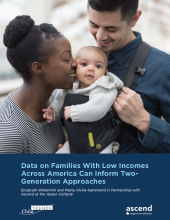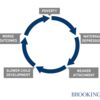0
Report
Community:
May 17, 2023
Researchers at UC Berkeley’s Youth and Allies Against Homelessness, or YAAH, conducted a study to better understand how the COVID-19 pandemic disproportionately affected unhoused youth and their ability to transition out of homelessness and into adulthood. YAAH released a report Wednesday to suggest how to better support this community in the future.
Authored by: UC Berkeley's Youth Allies Against Homelessness for The Daily Californian
Topics: Broadband, COVID-19, Food insecurity, Health, Homelessness, Housing, Low-income, Mental health, Racial inequalities, Youth
 Shared by Sandra Ware
Shared by Sandra Ware
Sandra Ware posted a
on May 25, 2023
UC Berkeley's Youth Allies Against Homelessness for The Daily Californian
Researchers at UC Berkeley’s Youth and Allies Against Homelessness, or YAAH, conducted a study to better understand how the COVID-19 pandemic disproportionately affected unhoused youth and their ability to transition out of homelessness and into adulthood.
0
Report
Community:
Mar 1, 2023

We are delighted to share a new research report in partnership with Child Trends: Data on Families with Low Incomes Across America Can Inform Two-Generation Approaches. In this new analysis, research experts Elizabeth Wildsmith and Marta Alvira-Hammond paint a detailed picture of how families in households with low incomes in the United States have changed since 2011. The report highlights 10 key findings from their analyses of family economic and social conditions related to financial security and mobility, family structure and living arrangements, education and employment, parental health, and community health indicators (for example, rates of child poverty, violent crime, child care costs). A deeper understanding of families with low-incomes will inform our collective work and strengthen how our 2Gen policy and practice recommendations can prioritize health, education, employment, and economic assets to ensure families have access to the resources they need to build intergenerational prosperity and well-being.
Authored by: Elizabeth Wildsmith and Marta Alvira-Hammond for Child Trends in partnership with Ascend at the Aspen Institute
Topics: dual-generation initiative, Early childhood, Education, Health, Housing, Legislation & Policy, Low-income, Racial inequalities
 Shared by Sandra Ware
Shared by Sandra Ware
Sandra Ware posted a
on Mar 2, 2023
Elizabeth Wildsmith and Marta Alvira-Hammond for Child Trends in partnership with Ascend at the Aspen Institute
We are delighted to share a new research report in partnership with Child Trends: Data on Families with Low Incomes Across America Can Inform Two-Generation Approaches.
0
Report
Community:
Feb 17, 2023
The findings from a Syracuse University study linking universal school meal policies with improved school attendance for young students provides a strong case for expanding free school meals, according to school nutrition and attendance experts.
Authored by: Anna Merod for K-12 DIVE
Topics: Attendance, Early childhood, Education, Food insecurity, Health, Legislation & Policy, Low-income, Nutrition, Youth
 Shared by Sandra Ware
Shared by Sandra Ware
Sandra Ware posted a
on Feb 23, 2023
The findings from a Syracuse University study linking universal school meal policies with improved school attendance for young students provides a strong case for expanding free school meals, according to school nutrition and attendance experts.
0
Report
Community:
Nov 4, 2022
The 2021 National Academies of Science, Engineering, and Medicine (NASEM) report, Implementing High-Quality Primary Care: Rebuilding the Foundation of Health Care defined a need for coordinated primary care leadership at the federal level. n a new Milbank Memorial Fund report, the Center for Professionalism and Value in Health Care’s Robert L. Phillips, Jr., Milbank Memorial Fund’s Christopher F. Koller, and Covered California’s Alice Hm Chen expand on NASEM recommendations and call for congressional support to establish an Office of Primary Care at the federal level to coordinate existing primary care services and provide oversight to initiatives focused on workforce training, behavioral health integration, clinical comprehensiveness, and payment. According to the authors, creating a robust investment in federal leadership in primary health care that includes a triad of a US Health and Human Services Secretary’s Council on Primary Care, a Primary Care Advisory Committee, and an Office of Primary Care will be essential to addressing the country’s four most important public health challenges: health inequities, pandemic response and resilience, the opioid epidemic, and access to mental health services.
Authored by: Robert L. Phillips Jr, Christopher F. Koller, and Alice Hm Chen for The Milbank Memorial Fund
Topics: COVID-19, Health, Low-income, Mental health, Substance abuse, Workforce development, Youth
 Shared by Sandra Ware
Shared by Sandra Ware
Sandra Ware posted a
on Nov 8, 2022
Robert L. Phillips Jr, Christopher F. Koller, and Alice Hm Chen for The Milbank Memorial Fund
The 2021 National Academies of Science, Engineering, and Medicine (NASEM) report, Implementing High-Quality Primary Care: Rebuilding the Foundation of Health Care defined a need for coordinated primary care leadership at the federal level.
0
Report
Community:
Apr 11, 2022
Educators play an important role in supporting students' mental well-being. The pandemic has added incredible layers of stress for both adults and young people. Although educators can't control all the stressors and sources of trauma affecting them, they can foster healing and wellness in their classroom or program and work to remove the stigma around mental health concerns.
Authored by: First Book Research & Insights
Topics: Advocacy, Depression, Early childhood, Education, Health, Healthy homes, Literacy, Low-income, Mental health, Racial inequalities, Research, School-readiness, Youth
 Shared by Stephanie Gray
Shared by Stephanie Gray
Stephanie Gray posted a
on Apr 11, 2022
First Book Research & Insights
Educators play an important role in supporting students' mental well-being. The pandemic has added incredible layers of stress for both adults and young people.
0
Report
Community: Youth
Dec 1, 2020
420,000.
Based on the new report, "Lost in the Masked Shuffle & Virtual Void: Children and Youth Experiencing Homelessness Amidst the Pandemic" from SchoolHouse Connection and Poverty Solutions at the University of Michigan, that’s how many fewer children and youth experiencing homelessness have been identified and enrolled by schools so far this school year.
According to our data and insights - gathered from educators and homeless liaisons across 49 states - the number of children, youth, and families experiencing homelessness has likely increased due to the economic crisis. Yet, because of COVID-19 challenges in identifying children and youth experiencing homelessness, hundreds of thousands may not be getting the education and support they need - from internet access, to housing, to food, to child care.
What’s more, only 18% of respondents indicated that federal coronavirus relief education funding provided by the CARES Act is being used to meet the needs of students experiencing homelessness.
To break generational cycles of homelessness, we must take swift action to support the increasing number of children, youth, and families in need. Check out our report to learn more and take action. We have included recommendations for Congressional leaders, state and local educational agencies, homeless, housing, food, and other relief agencies, and philanthropic organizations.
Authored by: Poverty Solutions at THE UNIVERSITY OF MICHIGAN & SCHOOLHOUSE CONNECTION
Topics: Attendance, Child welfare, Early childhood, Education, Funding, Health, Homelessness, Low-income, Stability, Youth
 Shared by Housing Is
Shared by Housing Is
Housing Is posted a
on Dec 1, 2020
Poverty Solutions at THE UNIVERSITY OF MICHIGAN & SCHOOLHOUSE CONNECTION
0
Report
Community:
Nov 7, 2019
How Housing Programs Can Support the Educational Needs of Children Living in Publicly Supported Homes
Authored by: Public and Affordable Housing Research Corporation
Topics: Attendance, Broadband, Child welfare, Early childhood, Health, Housing, Literacy, Low-income, Out-of-school time, Partnerships, Place-based, Research, School-readiness
 Shared by Kelly McElwain
Shared by Kelly McElwain
Kelly McElwain posted a
on Nov 7, 2019
Public and Affordable Housing Research Corporation
How Housing Programs Can Support the Educational Needs of Children Living in Publicly Supported Homes
0
Report
Community:
Jun 6, 2019
Trends in Housing Assistance and Who it Serves
Authored by: PAHRC
Topics: Community development, Disabilities, Education, Funding, Health, Homelessness, Housing, Legislation & Policy, Low-income, Partnerships, Research, Seniors, Workforce development, Youth
 Shared by Keely Stater
Shared by Keely Stater
Keely Stater posted a
on Sep 10, 2019
Trends in Housing Assistance and Who it Serves
0
Report
Community:
In 2017, the Bipartisan Policy Center and the Center for Outcomes Research and Education (CORE) spoke with over 90 national thought leaders and stakeholders about the current state of rural health care in the Upper Midwest region, including Iowa, Minnesota, Montana, Nebraska, North Dakota, South Dakota, and Wyoming. BPC and CORE used these discussions to determine the real-world implications of existing federal policies, to understand ongoing care challenges, and to identify opportunities for improvement in rural health care access and delivery.
Authored by: Bipartisan Policy Center
Topics: Health, Low-income, Midwest, Research, Seniors
 Shared by Housing Is
Shared by Housing Is
Housing Is posted a
on Jun 12, 2019
In 2017, the Bipartisan Policy Center and the Center for Outcomes Research and Education (CORE) spoke with over 90 national thought leaders and stakeholders about the current state of rural health care in the Upper Midwest region, including Iowa, Minnesota, Montana, Nebraska, North Dakota, South Dak
0
Report
Community:
May 1, 2019
Protecting and improving the health of pregnant and postpartum women, infants, and young children is critically important. Those eligible for WIC — and frequently their communities and the nation — are facing levels of poverty, food insecurity, inadequate dietary intake, obesity, and ill health that are far too
high. Research shows that WIC can help to alleviate these problems for children, mothers, and their families, and improve overall health and well-being. Yet the program is reaching far too few eligible people: only 3 out of 5. Increasing access to and strengthening WIC is essential to improving nutrition and reducing health disparities in this nation.
Authored by: Food Research & Action Center (FRAC)
Topics: Early childhood, Family engagement, Food insecurity, Funding, Health, Legislation & Policy, Low-income
 Shared by Housing Is
Shared by Housing Is
Housing Is posted a
on Jun 3, 2019
Food Research & Action Center (FRAC)
Protecting and improving the health of pregnant and postpartum women, infants, and young children is critically important.
0
Report
Community:
Jan 1, 2019
This report focuses on the homelessness and health care use of older homeless adults in New York City, specifically those 55 years of age or older. Recent evidence suggests a unique cohort effect of postWorld War II “baby boomers” born between 1955 and 1965 who have shown a disproportionately high
risk of homelessness over the last two decades.
Authored by: Dennis Culhane, Dan Treglia, Randall Kuhn, Kelly Doran, Eileen Johns, and Maryanne Schretzman for Actionable Intelligence for Social Policy
Topics: Cost effectiveness, East Coast, Health, Homelessness, Housing, Low-income, Research, Seniors
 Shared by Housing Is
Shared by Housing Is
Housing Is posted a
on Apr 11, 2019
Dennis Culhane, Dan Treglia, Randall Kuhn, Kelly Doran, Eileen Johns, and Maryanne Schretzman for Actionable Intelligence for Social Policy
This report focuses on the homelessness and health care use of older homeless adults in New York City, specifically those 55 years of age or older.
0
Report
Community:
Jan 1, 2019
This report is intended to accompany a report entitled The Emerging Crisis of Aged Homelessness: Could Proposed Housing Solutions Be Funded from Avoidance of Excess Hospital and Nursing Home Costs?, which reports on findings from a multi-site study involving the analysis of data from Boston, Los Angeles and New York City. That report is motivated by recent evidence documenting a cohort effect in the single adult homeless population, wherein persons born between 1955 and 1964 have faced a disproportionate risk of homelessness over the past two decades.
Authored by: Thomas Byrne, Daniel Miller, and Jae Quinn for Actionable Intelligence for Social Policy
Topics: Cost effectiveness, East Coast, Health, Homelessness, Housing, Low-income, Research, Seniors
 Shared by Housing Is
Shared by Housing Is
Housing Is posted a
on Apr 11, 2019
Thomas Byrne, Daniel Miller, and Jae Quinn for Actionable Intelligence for Social Policy
This report is intended to accompany a report entitled The Emerging Crisis of Aged Homelessness: Could Proposed Housing Solutions Be Funded from Avoidance of Excess Hospital and Nursing Home Costs?, which reports on findings from a multi-site study involving the analysis of data from Boston, Los Ang
0
Report
Community:
Dec 7, 2018
This report examines health services use and population dynamics among the aging homeless population in Los Angeles. Evidence suggests that adverse health outcomes lead to homelessness, and the conditions related to homelessness lead to or exacerbate a range of health problems
Authored by: Dennis Culhane, Steve Metraux, and Randall Kuhn for Actionable Intelligence for Social Policy
Topics: Health, Homelessness, Housing, Low-income, Research, West Coast
 Shared by Housing Is
Shared by Housing Is
Housing Is posted a
on Apr 11, 2019
Dennis Culhane, Steve Metraux, and Randall Kuhn for Actionable Intelligence for Social Policy
This report examines health services use and population dynamics among the aging homeless population in Los Angeles. Evidence suggests that adverse health outcomes lead to homelessness, and the conditions related to homelessness lead to or exacerbate a range of health problems
0
Report
Community:
Apr 8, 2019
While the program has changed very little since its inception, the need for the program has increased. In 1975, the number of program grantees stood at 594. Today, the number of grantees stands at 1,268 as more communities qualify to receive direct program allocations. Based on a CDBG Needs Survey conducted by the CDBG Coalition (and discussed later in this report), CDBG grantees have delayed and canceled projects and reduced or permanently eliminated programs because of a lack of CDBG funds. CDBG is an important investment tool for communities and neighborhoods, but program funding must increase to meet local need to ensure CDBG grantee communities are healthy, vibrant and thriving.
Authored by:
Topics: Community development, Funding, Health, Homelessness, Housing, Legislation & Policy, Low-income, Partnerships, Research, Safety, Seniors
 Shared by Housing Is
Shared by Housing Is
Housing Is posted a
on Apr 8, 2019
A report of the CDBG Coalition
While the program has changed very little since its inception, the need for the program has increased. In 1975, the number of program grantees stood at 594. Today, the number of grantees stands at 1,268 as more communities qualify to receive direct program allocations.
0
Interactive
Community:
Mar 20, 2019
As the population ages, one of the greatest challenges facing state officials is how to organize and pay for long-term services and supports (LTSS) for low-income elderly and disabled adults—the most complex, expensive, and fastest-growing group covered by Medicaid. To help address this challenge, a toolkit for state leaders published in 2017 has been updated.
Authored by: Manatt Health Strategies and PhD Center for Health Care Strategies
Topics: Disabilities, Health, Low-income, Medicaid / Medicare, Partnerships, Seniors
 Shared by Housing Is
Shared by Housing Is
Housing Is posted a
on Mar 26, 2019
Manatt Health Strategies and PhD Center for Health Care Strategies
As the population ages, one of the greatest challenges facing state officials is how to organize and pay for long-term services and supports (LTSS) for low-income elderly and disabled adults—the most complex, expensive, and fastest-growing group covered by Medicaid.
0
Report
Community:
Welcome to the Food Research & Action Center’s winter issue of ResearchWire. This quarterly newsletter focuses on the latest research, reports, and resources from government agencies, academic researchers, think tanks, and elsewhere at the intersection of food insecurity, poverty, the federal nutrition programs, and health.
Authored by: Food Research & Action Center (FRAC)
Topics: Child welfare, Food insecurity, Funding, Health, Legislation & Policy, Low-income, Nutrition, Research, Youth
 Shared by Mica O'Brien
Shared by Mica O'Brien
Mica O'Brien posted a
on Feb 28, 2019
Food Research & Action Center (FRAC)
Welcome to the Food Research & Action Center’s winter issue of ResearchWire.
0
Report
Community:
Feb 19, 2019
Integrating health care data with data from other sectors helps address the holistic needs of individual patients while informing the development of population-level programs and policies that can improve outcomes, both in health care and other sectors. This paper provides guidance for those in non-health care sectors (e.g. housing, social services, community-based organizations) on effectively engaging and advancing conversations with health care stakeholders about collaborating to share data, focusing on the specific stakeholder of hospitals/health systems.
Authored by: Data Across Sectors for Health (DASH)
Topics: Health, Housing, Low-income, Medicaid / Medicare, Partnerships
 Shared by Mica O'Brien
Shared by Mica O'Brien
Mica O'Brien posted a
on Feb 20, 2019
Data Across Sectors for Health (DASH)
Integrating health care data with data from other sectors helps address the holistic needs of individual patients while informing the development of population-level programs and policies that can improve outcomes, both in health care and other sectors.
0
Report
Community:
Feb 13, 2019
More low-income children across the country are getting the nutrition they need to learn and thrive through the School Breakfast Program, according to the annual School Breakfast Scorecard, released by the Food Research & Action Center (FRAC).
Authored by: Food Research & Action Center (FRAC)
Topics: Child welfare, Food insecurity, Health, Low-income, Nutrition
 Shared by Housing Is
Shared by Housing Is
Housing Is posted a
on Feb 14, 2019
Food Research & Action Center (FRAC)
More low-income children across the country are getting the nutrition they need to learn and thrive through the School Breakfast Program, according to the annual School Breakfast Scorecard, released by the Food Research & Action Center (FRAC).
0
Report
Community:
Jan 31, 2019
For a very young child, the relationship with a primary caregiver, most often though not exclusively a mother, lays an important psychological foundation for later flourishing. Successful attachment and bonding in the first two years of life predicts healthy later development on a range of fronts, from mental health to educational skills. When bonding and attachment prove difficult, child development is affected. Recent advances in brain science allow this impact to be shown more clearly and more definitively.
Authored by: Richard V. Reeves for Brookings Institution
Topics: Child welfare, Depression, Dual-generation, Early childhood, Health, Low-income, Mental health, Mobility
 Shared by Mica O'Brien
Shared by Mica O'Brien
Mica O'Brien posted a
on Feb 5, 2019
Richard V. Reeves for Brookings Institution
For a very young child, the relationship with a primary caregiver, most often though not exclusively a mother, lays an important psychological foundation for later flourishing.
0
Interactive
Community:
Jan 30, 2019
Medicaid helps low-income seniors, children, people with disabilities, and families get needed health care. Medicaid coverage improves families’ financial security by protecting them from medical debt and helping them stay healthy for work. Medicaid coverage also has long-term health, educational, and financial benefits for children. Click on the map to learn more about Medicaid’s contributions to your state.
Authored by: Matt Broaddus for the Center on Budget and Policy Priorities
Topics: Child welfare, Health, Legislation & Policy, Low-income, Medicaid / Medicare, Research
 Shared by Housing Is
Shared by Housing Is
Housing Is posted a
on Jan 30, 2019
Matt Broaddus for the Center on Budget and Policy Priorities
Medicaid helps low-income seniors, children, people with disabilities, and families get needed health care. Medicaid coverage improves families’ financial security by protecting them from medical debt and helping them stay healthy for work.
0
Report
Community:
Jan 7, 2019
When the school day ends, far too many children return home to empty refrigerators and bare cupboards. The federal Afterschool Nutrition Programs provide healthy meals and snacks to children to ensure they are fed after school (and on weekends and during school holidays). According to FRAC’s latest Afterschool Suppers: A Snapshot of Participation report, the District of Columbia had the highest participation in the nation of children in the Afterschool Supper Program, with a 31.6 percent increase in participation between October 2016 and October 2017.
Authored by: Paige Pokorney for Food Research and Action Center (FRAC)
Topics: Child welfare, East Coast, Education, Food insecurity, Health, Low-income, Nutrition, Out-of-school time
 Shared by Housing Is
Shared by Housing Is
Housing Is posted a
on Jan 16, 2019
Paige Pokorney for Food Research and Action Center (FRAC)
When the school day ends, far too many children return home to empty refrigerators and bare cupboards. The federal Afterschool Nutrition Programs provide healthy meals and snacks to children to ensure they are fed after school (and on weekends and during school holidays).
0
Report
Community:
Jan 10, 2019
There isn't federal data on food insecurity among college students nationally, so the GAO reviewed 31 studies on the topic, showing that most concluded that over a third of college students don't always have enough to eat.
Authored by: Elissa Nadworny and Clare Lombardo for NPR
Topics: Education, Food insecurity, Health, Legislation & Policy, Low-income, Nutrition, Post-secondary, Research, Youth
 Shared by Housing Is
Shared by Housing Is
Housing Is posted a
on Jan 16, 2019
Elissa Nadworny and Clare Lombardo for NPR
There isn't federal data on food insecurity among college students nationally, so the GAO reviewed 31 studies on the topic, showing that most concluded that over a third of college students don't always have enough to eat.
0
Interactive
Community:
Jan 1, 2019
A collection of resources that cover public health issues such as dental care, diabetes, vaccines, and nutrition.
Authored by: Mark Barna for The Nation's Health
Topics: Child welfare, Health, Low-income, Safety
 Shared by Mica O'Brien
Shared by Mica O'Brien
Mica O'Brien posted a
on Jan 7, 2019
Mark Barna for The Nation's Health
A collection of resources that cover public health issues such as dental care, diabetes, vaccines, and nutrition.
0
Report
Community:
Jan 1, 2019
Environmental health services, from asthma home visiting programs to lead testing, can help protect children from the dangerous environmental exposures they encounter every day. But the problem for parents and caregivers is accessing such services, a new analysis from APHA’s Center for Public Health Policy shows.
Authored by: Julia Haskins for The Nation's Health
Topics: Asthma, Child welfare, Health, Healthy homes, Housing, Lead, Low-income, Place-based, Preventative care, Research, Safety
 Shared by Mica O'Brien
Shared by Mica O'Brien
Mica O'Brien posted a
on Jan 7, 2019
Julia Haskins for The Nation's Health
Environmental health services, from asthma home visiting programs to lead testing, can help protect children from the dangerous environmental exposures they encounter every day.
0
Report
Community:
Dec 1, 2018
The conditions in which people live, learn, work, and play affect health in myriad ways. State Medicaid agencies are increasingly exploring opportunities to address these social determinants of health (SDOH) in an effort to provide more efficient care and improve health outcomes. As states begin to support these efforts, they are thinking strategically about how best to align SDOH-related activities with other reforms — such as value-based purchasing, care transformation, and the development of cross-sector partnerships.
Authored by: Center for Health Care Strategies, Inc.
Topics: Health, Low-income, Medicaid / Medicare
 Shared by Housing Is
Shared by Housing Is
Housing Is posted a
on Dec 19, 2018
Center for Health Care Strategies, Inc.
The conditions in which people live, learn, work, and play affect health in myriad ways. State Medicaid agencies are increasingly exploring opportunities to address these social determinants of health (SDOH) in an effort to provide more efficient care and improve health outcomes.


 Shared by Sandra Ware
on May 25, 2023
Shared by Sandra Ware
on May 25, 2023


 Shared by Sandra Ware
on Mar 2, 2023
Shared by Sandra Ware
on Mar 2, 2023


 Shared by Sandra Ware
on Feb 23, 2023
Shared by Sandra Ware
on Feb 23, 2023

 Shared by Sandra Ware
on Nov 8, 2022
Shared by Sandra Ware
on Nov 8, 2022
 Shared by Stephanie Gray
on Apr 11, 2022
Shared by Stephanie Gray
on Apr 11, 2022
 Shared by Housing Is
on Dec 1, 2020
Shared by Housing Is
on Dec 1, 2020
 Shared by Kelly McElwain
on Nov 7, 2019
Shared by Kelly McElwain
on Nov 7, 2019

 Shared by Keely Stater
on Sep 10, 2019
Shared by Keely Stater
on Sep 10, 2019

 Shared by Housing Is
on Jun 12, 2019
Shared by Housing Is
on Jun 12, 2019
 Shared by Housing Is
on Jun 3, 2019
Shared by Housing Is
on Jun 3, 2019
 Shared by Housing Is
on Apr 11, 2019
Shared by Housing Is
on Apr 11, 2019
 Shared by Housing Is
on Apr 11, 2019
Shared by Housing Is
on Apr 11, 2019
 Shared by Housing Is
on Apr 11, 2019
Shared by Housing Is
on Apr 11, 2019
 Shared by Housing Is
on Apr 8, 2019
Shared by Housing Is
on Apr 8, 2019
 Shared by Housing Is
on Mar 26, 2019
Shared by Housing Is
on Mar 26, 2019
 Shared by Housing Is
on Feb 14, 2019
Shared by Housing Is
on Feb 14, 2019


 Shared by Housing Is
on Jan 30, 2019
Shared by Housing Is
on Jan 30, 2019

 Shared by Housing Is
on Jan 16, 2019
Shared by Housing Is
on Jan 16, 2019


 Shared by Housing Is
on Jan 16, 2019
Shared by Housing Is
on Jan 16, 2019

 Shared by Housing Is
on Dec 19, 2018
Shared by Housing Is
on Dec 19, 2018